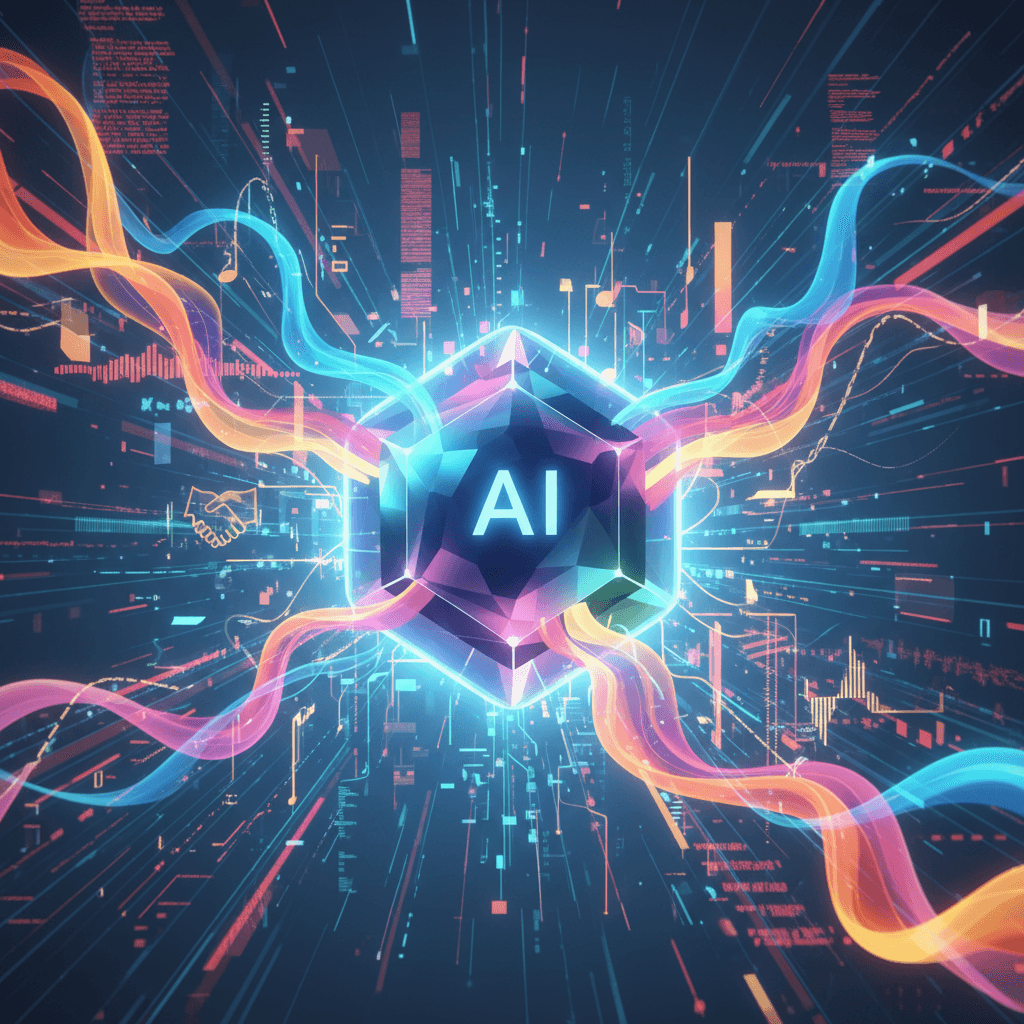OpenAI Develops Advanced AI Music Model, Opening New Frontier in Generative AI
OpenAI targets the booming AI music scene, confronting fierce rivals and the industry's complex copyright challenges.
October 25, 2025

OpenAI, a prominent research and deployment company in artificial intelligence, is actively developing a sophisticated AI model capable of generating music from text or audio prompts. This strategic move places the company in direct competition with emerging leaders in the AI music generation space, such as Suno and Udio, and signals a significant new frontier in the ongoing race for AI dominance. The development of this new model, reportedly capable of creating everything from soundtracks to accompaniments, represents an expansion of OpenAI's product ecosystem beyond its well-known text and image generation capabilities.[1][2] This foray into the auditory domain follows the trajectory of the company's text-to-video model, Sora, further diversifying its portfolio of generative AI tools.[1][2]
OpenAI's interest in music generation is not new; the company has a history of exploring the intersection of AI and music. In 2019, it introduced MuseNet, a deep neural network that could generate four-minute musical compositions with up to ten different instruments, blending various styles from classical to rock.[3][4][5] This was followed in 2020 by Jukebox, a neural network that took a significant step forward by generating music with rudimentary singing as raw audio.[6][7][4] Jukebox was trained on a massive dataset of 1.2 million songs and could produce music in a variety of genres and artist styles based on user inputs of genre, artist, and lyrics.[8][4][9] However, these earlier models were largely considered experimental and had limitations in terms of sound quality and coherence, preventing their integration into mainstream products like ChatGPT.[8][3]
The current landscape for AI music generation is significantly more advanced and competitive than when OpenAI first released MuseNet and Jukebox. Startups like Suno and Udio have garnered considerable attention for their ability to generate high-quality, full-length songs from simple text prompts.[10][11] These platforms have made music creation more accessible to the general public, allowing users to generate realistic songs with vocals and instrumentation without any musical training.[10][12] The rapid advancement of this technology has not gone unnoticed by other major tech players, with companies like Google also investing in their own music generation models, such as Lyria.[3] This intensifying competition underscores the perceived market potential for AI-generated music, which extends from individual creators to commercial applications in advertising and content creation.[3][2]
Despite the technological leaps, the field of AI music generation is fraught with significant legal and ethical challenges, primarily centered on copyright infringement. The training of these models requires vast amounts of existing music, raising questions about the unauthorized use of copyrighted material.[13][14] Major record labels, including Sony Music Entertainment, Universal Music Group, and Warner Records, have filed lawsuits against both Suno and Udio, alleging that their models were trained on copyrighted songs without permission.[15] These lawsuits highlight the central conflict between the need for massive datasets to train powerful AI models and the intellectual property rights of musicians and record labels.[15][16] The outcome of these legal battles could have profound implications for the future of generative AI, potentially restricting the data available for training and shaping the business models of AI music companies.[13] Currently, U.S. copyright law does not grant protection to works created solely by AI without human authorship, adding another layer of complexity to the ownership and monetization of AI-generated music.[13][17]
As OpenAI pushes forward with its new music generation model, it is reportedly taking steps to navigate this complex landscape by collaborating with institutions like The Juilliard School to annotate musical scores for its training data.[1][3] This approach may be part of a broader strategy to build a more ethically sourced dataset and mitigate potential copyright issues. The company's vision for this technology appears to be ambitious, with potential integrations into its existing products to create a more comprehensive AI ecosystem.[18] For example, users could generate a video with Sora and then create a custom soundtrack for it using the new music model, all within the OpenAI environment.[18] The development of this technology also opens up new avenues for commercialization, such as providing tools for advertisers to create custom jingles and melodies.[3][2] The ultimate success of OpenAI's venture into music generation will depend not only on the technical capabilities of its model but also on its ability to address the critical copyright concerns that currently pervade the industry. The resolution of these legal and ethical questions will be pivotal in determining whether AI-generated music becomes a collaborative tool for artists or a disruptive force that challenges the foundations of the music industry.
Sources
[1]
[2]
[3]
[5]
[6]
[7]
[8]
[9]
[10]
[11]
[12]
[13]
[14]
[15]
[16]
[17]
[18]